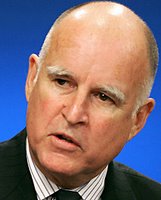(11-28) 15:50 PST WASHINGTON, (AP) --
A top aide to former Secretary of State Colin Powell said Monday that wrongheaded ideas for the handling of foreign detainees arose from White House and Pentagon officials who argued that "the president of the United States is all-powerful" and the Geneva Conventions irrelevant.
In an Associated Press interview, former Powell chief of staff Lawrence Wilkerson also said President Bush was "too aloof, too distant from the details" of postwar planning. Underlings exploited Bush's detachment and made poor decisions, Wilkerson said.
Wilkerson blamed Vice President Dick Cheney, Secretary of Defense Donald Rumsfeld and like-minded aides. He said Cheney must have sincerely believed that Iraq could be a spawning ground for new terror assaults, because "otherwise I have to declare him a moron, an idiot or a nefarious bastard."
On the question of detainees picked up in Afghanistan and other fronts in the war on terror, Wilkerson said Bush heard two sides of an impassioned argument within his administration. Abuse of prisoners, and even the deaths of some who had been interrogated in Afghanistan and elsewhere, have bruised the U.S. image abroad and undermined support for the Iraq war.
Cheney's office, Rumsfeld aides and others argued "that the president of the United States is all-powerful, that as commander in chief the president of the United States can do anything he damn well pleases," Wilkerson said.
On the other side were Powell, others at the State Department and top military brass, and occasionally Condoleezza Rice, who was then national security adviser, Wilkerson said.
Powell raised frequent and loud objections, his former aide said, once yelling into a telephone at Rumsfeld: "Donald, don't you understand what you are doing to our image?"
Wilkerson said Bush tried to work out a compromise in 2001 and 2002 that recognized that the war on terrorism was different from past wars and required greater flexibility in handling prisoners who don't belong to an enemy state or follow the rules themselves.
Bush's stated policy, which was heatedly criticized by civil liberties and legal groups at the time, was defensible, Wilkerson said. But it was undermined almost immediately in practice, he said.
In the field, the United States followed the policies of hard-liners who wanted essentially unchecked ability to detain and harshly interrogate prisoners at Guantanamo Bay and elsewhere, Wilkerson said.
Wilkerson, who left government with Powell in January, said he is now somewhat estranged from his former boss. He worked for Powell for 16 years. Wilkerson became a surprise critic of the Iraq war-planning effort and other administration decisions this fall, and he has said his Powell did not put him up to it.
On Iraq, Wilkerson said Powell may have had doubts about the extent of the threat posed by Saddam Hussein but was convinced by then-CIA Director George Tenet and others that the intelligence behind the push toward war was sound.
He said Powell now generally believes it was a good idea to remove Saddam from power but may not agree with either the timing or execution of the war.
"What he seems to be saying to me now is the president failed to discipline the process the way he should have and that the president is ultimately responsible for this whole mess," Wilkerson said.
Powell was widely regarded as a dove to Cheney's and Rumsfeld's hawks, but he made a forceful case for war before the United Nations Security Council in February 2003, a month before the invasion. At one point, he said Saddam possessed mobile labs to make weapons of mass destruction, but they have not been found.
Wilkerson said the CIA and other agencies allowed mishandled and bogus information to underpin that speech and the administration case for war.
He said he has almost, but not quite, concluded that Cheney and others in the administration deliberately ignored evidence of bad intelligence and looked only at what supported their case for war.
A newly declassified Defense Intelligence Agency document from February 2002 said that an al-Qaida military instructor was probably misleading his interrogators about training that the terror group's members received from Iraq on chemical, biological and radiological weapons. Ibn al-Shaykh al-Libi reportedly recanted his statements in January 2004.
A presidential intelligence commission also has dissected how spy agencies handled an Iraqi refugee who was a German intelligence source. Code-named Curveball, this man, a leading source on Iraq's purported mobile biological weapons labs, was found to be a fabricator and alcoholic.

